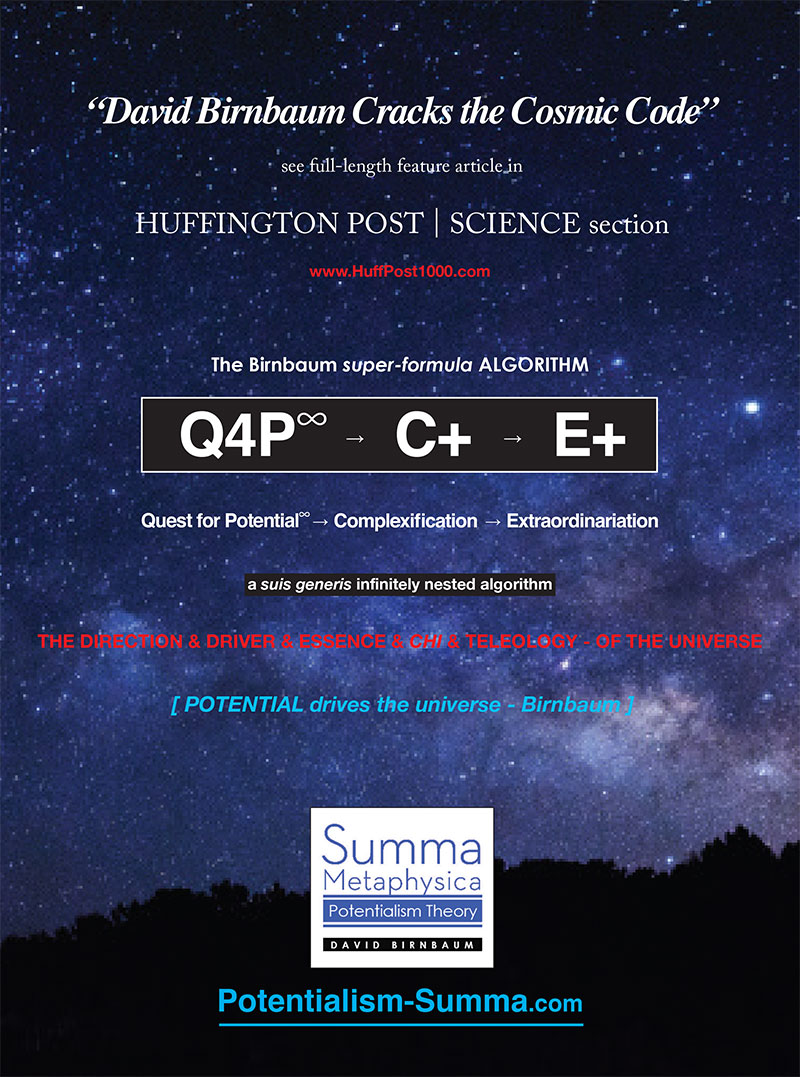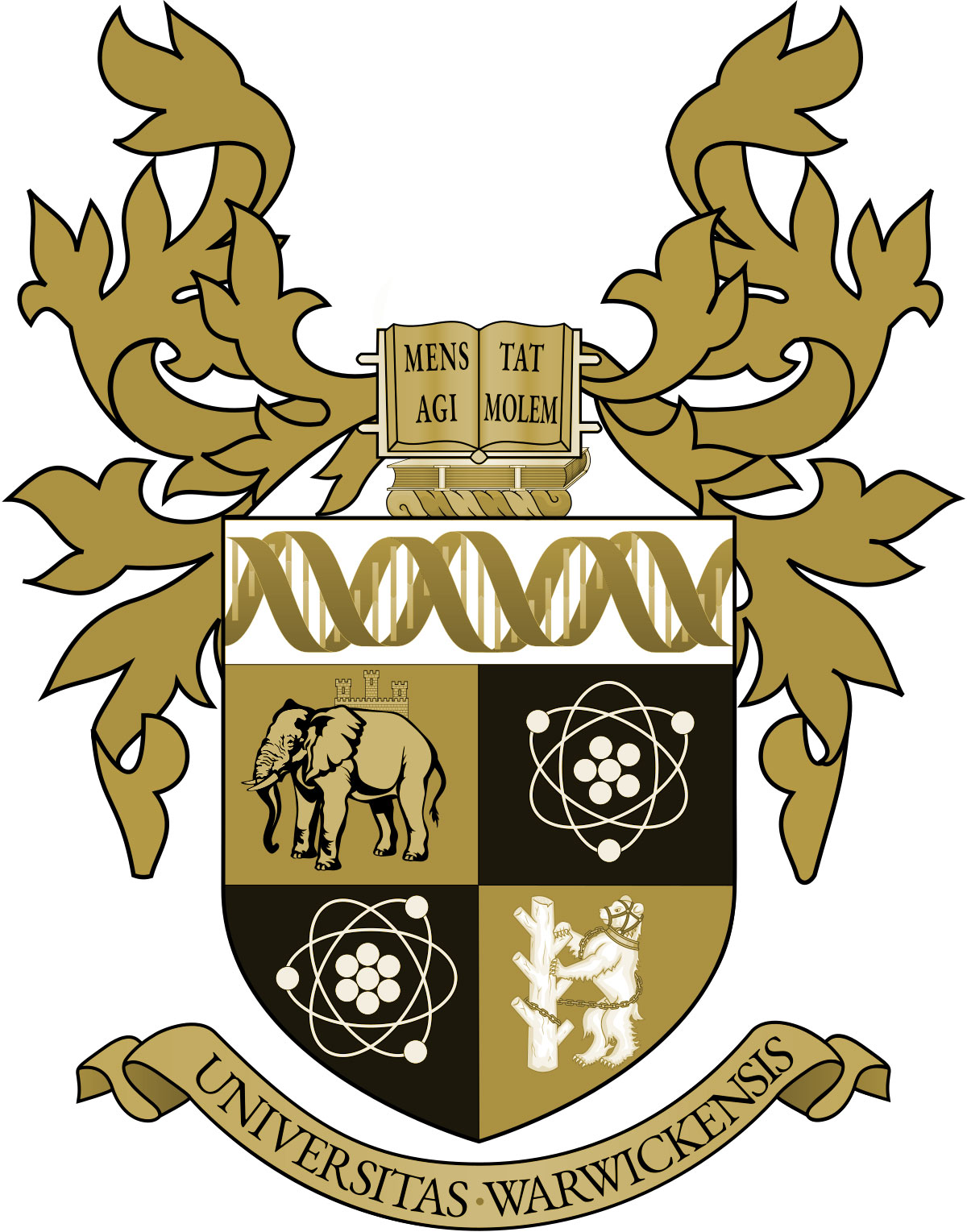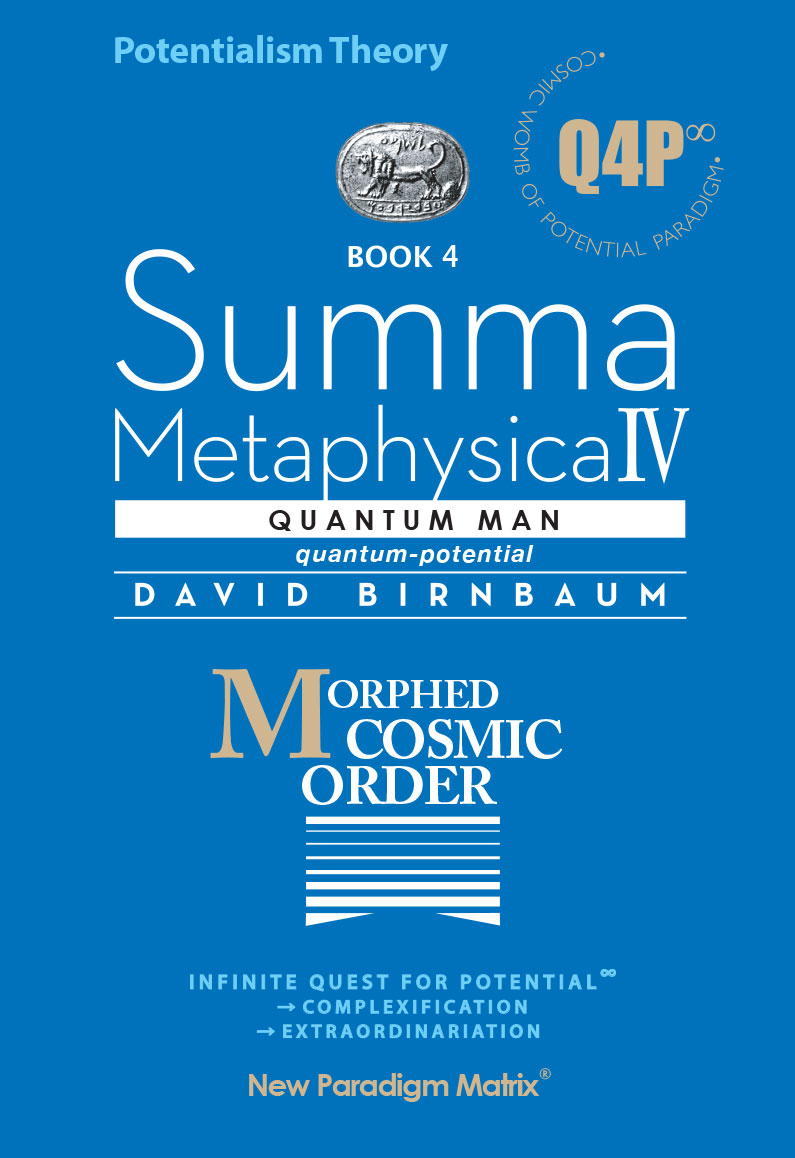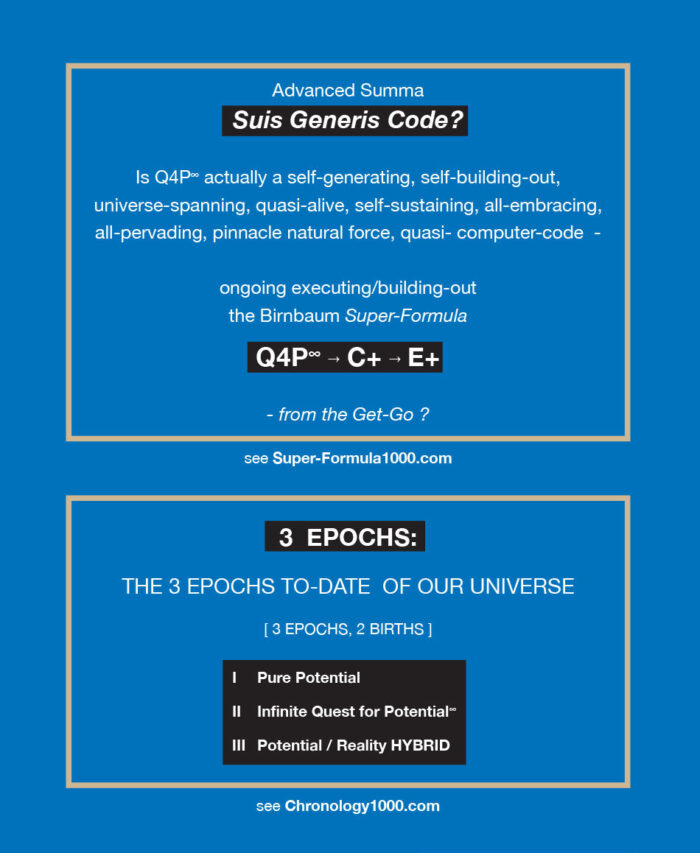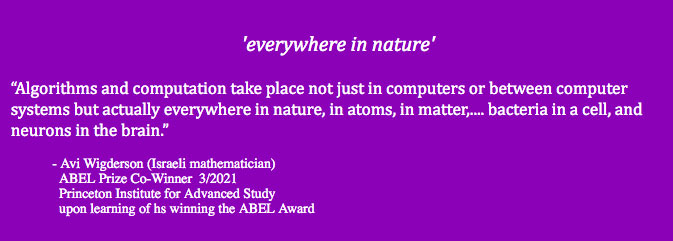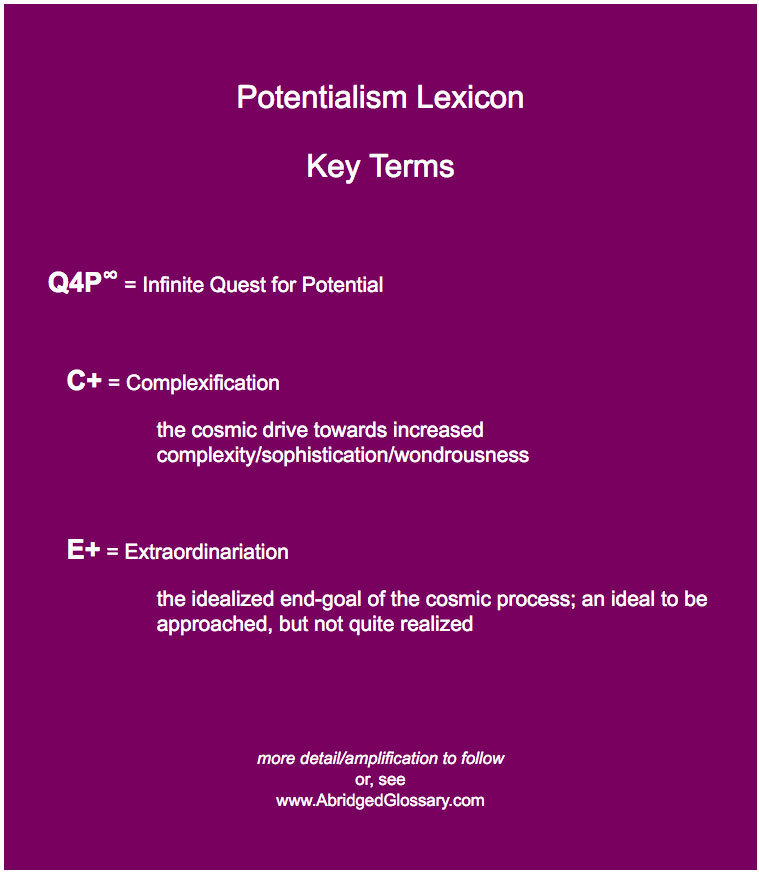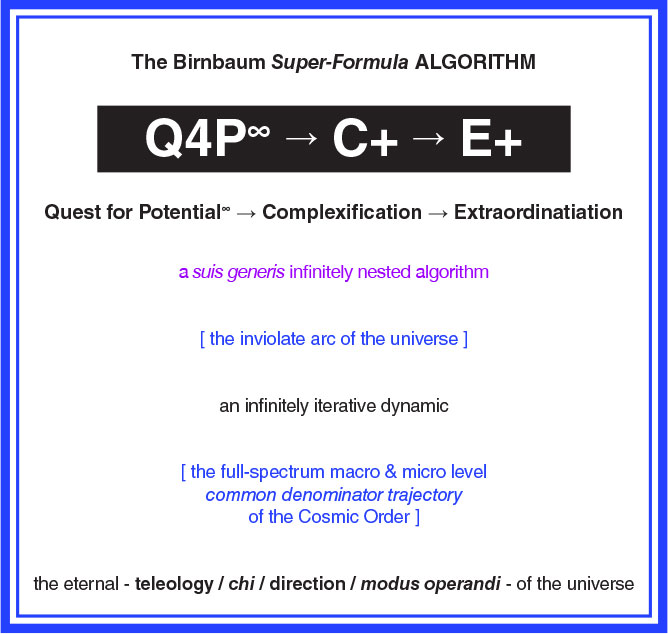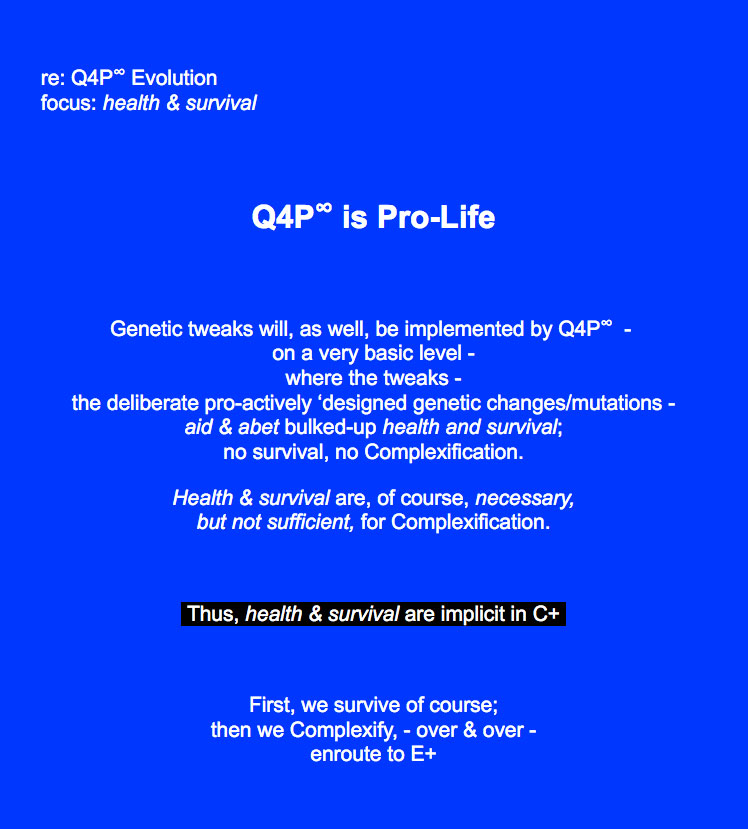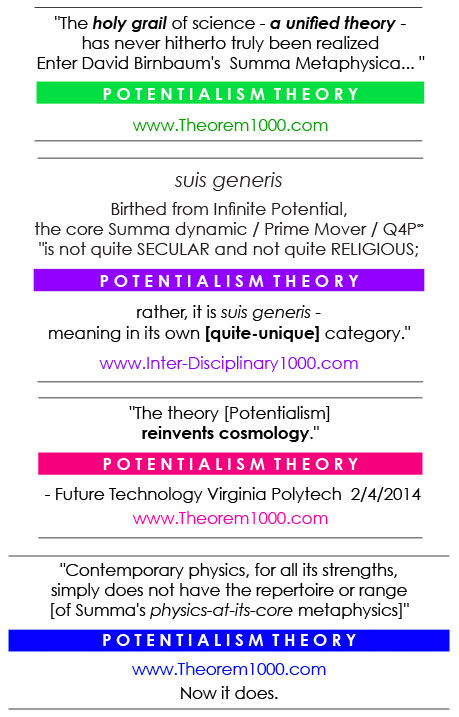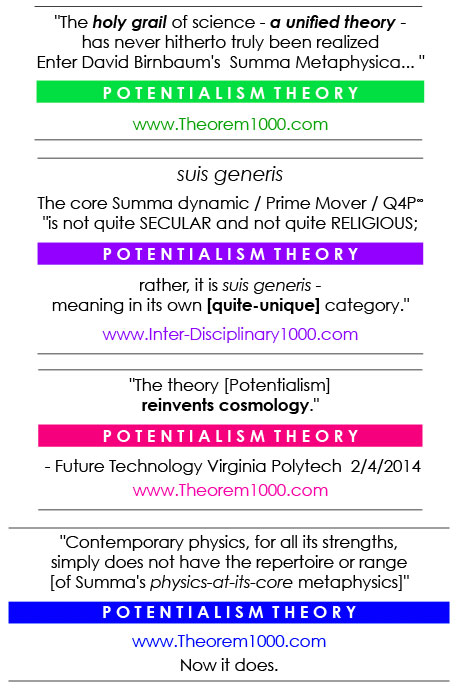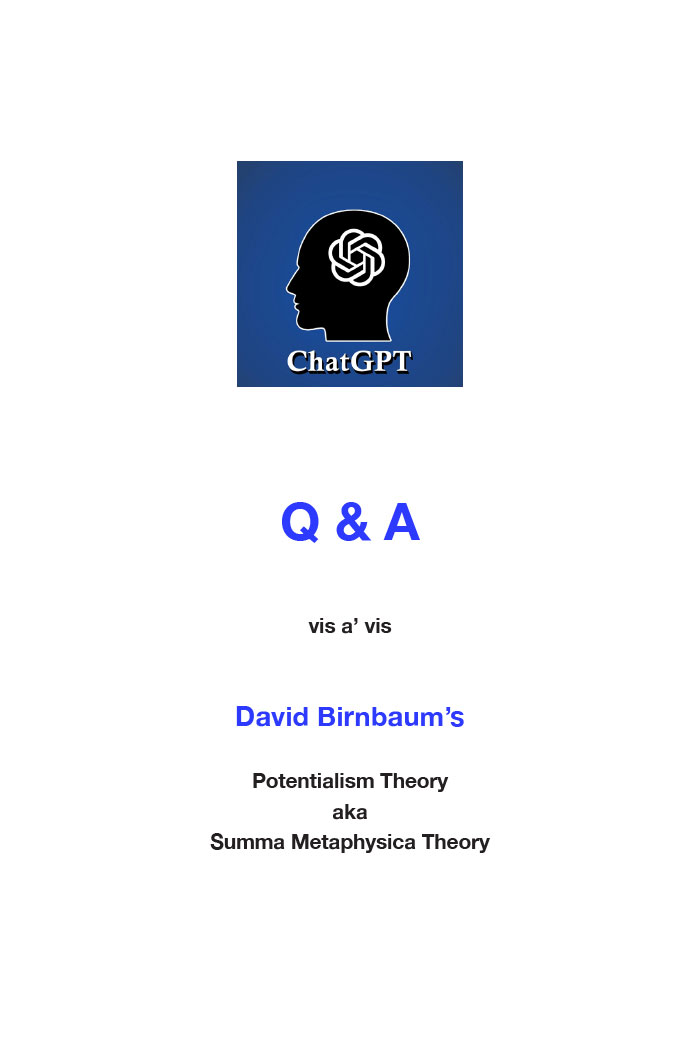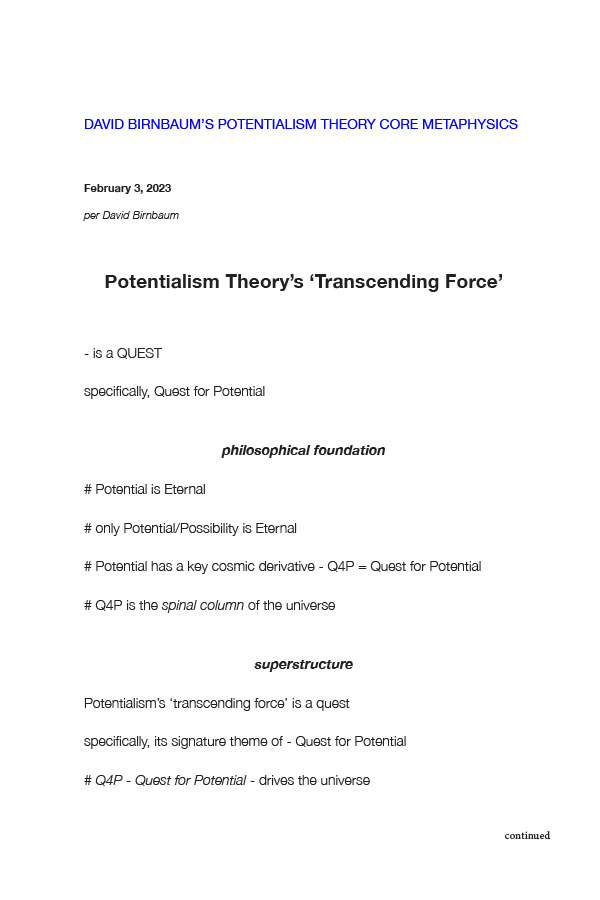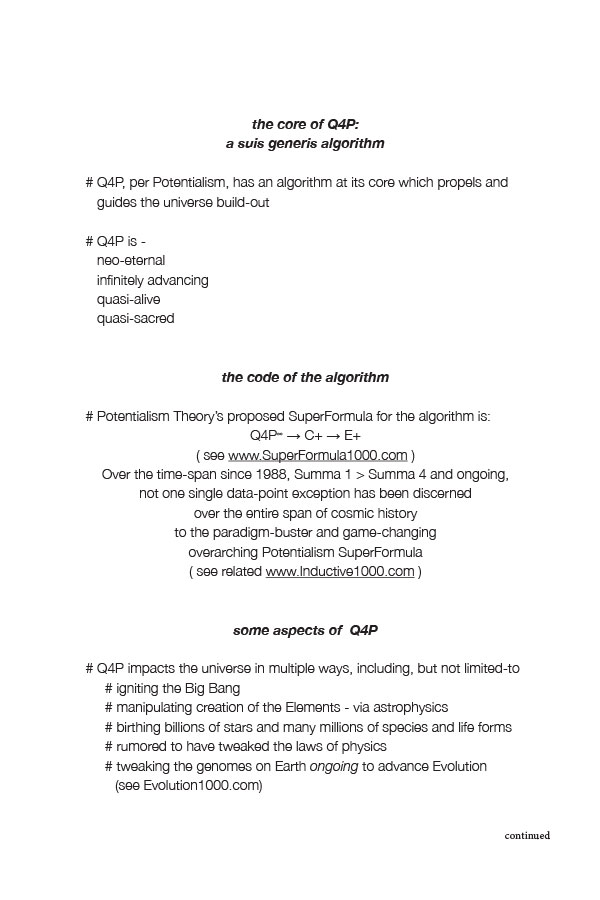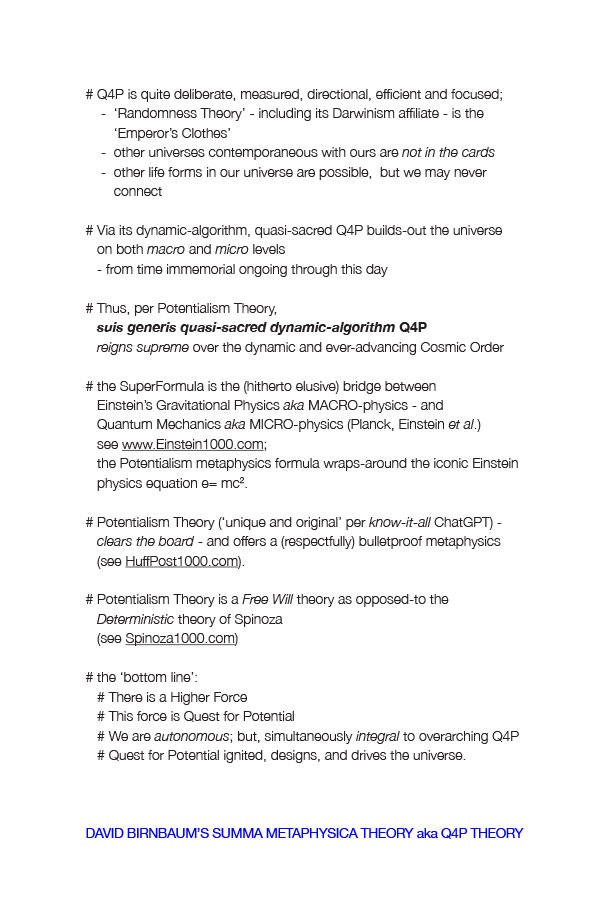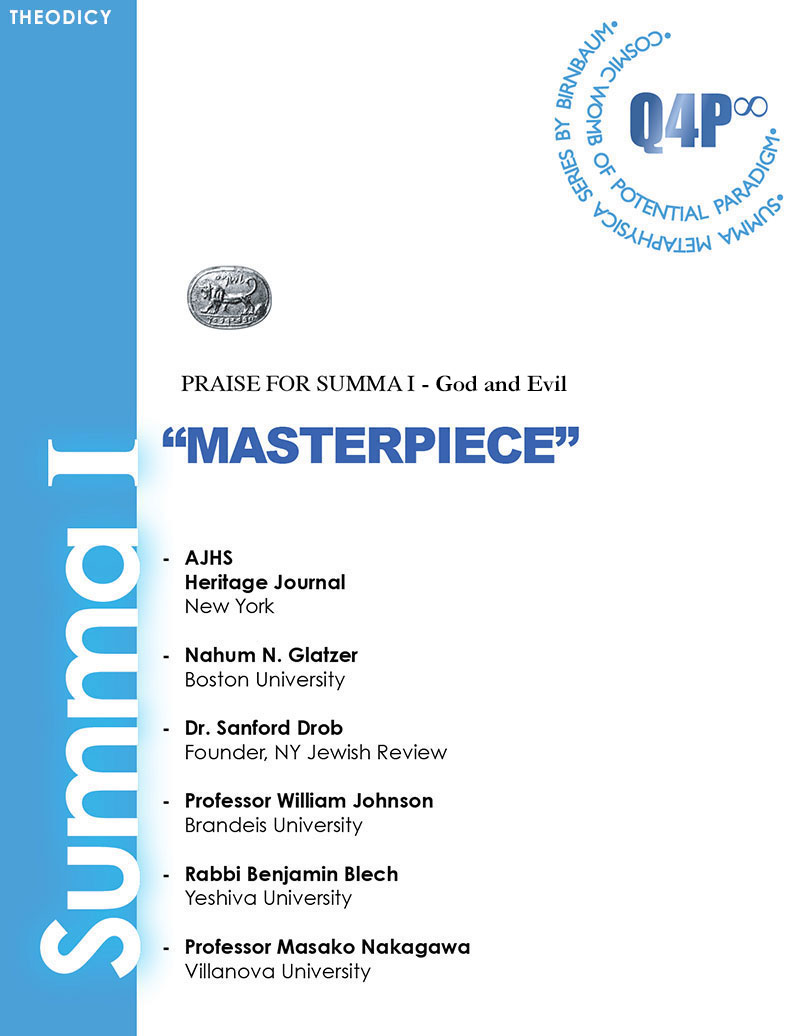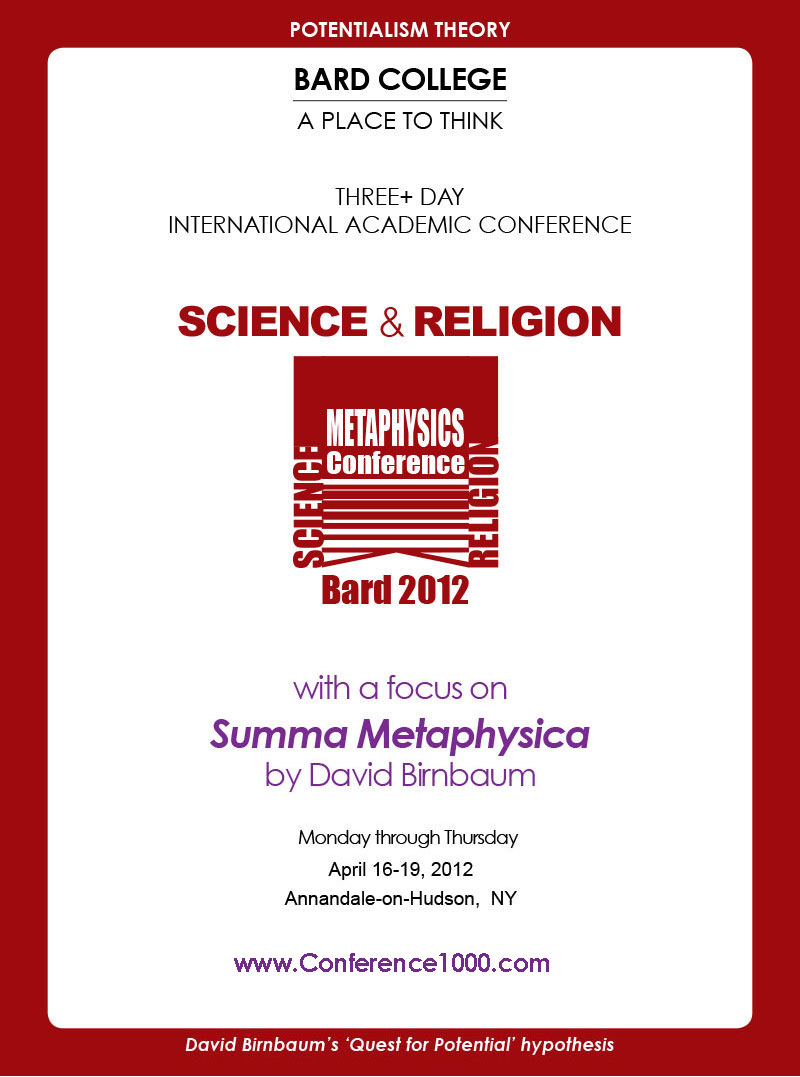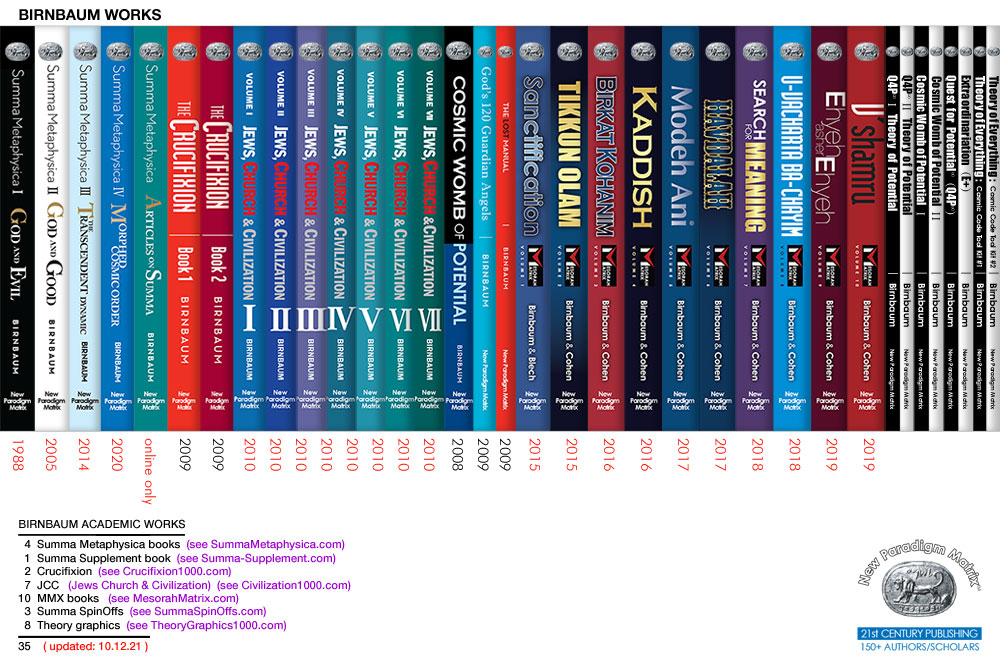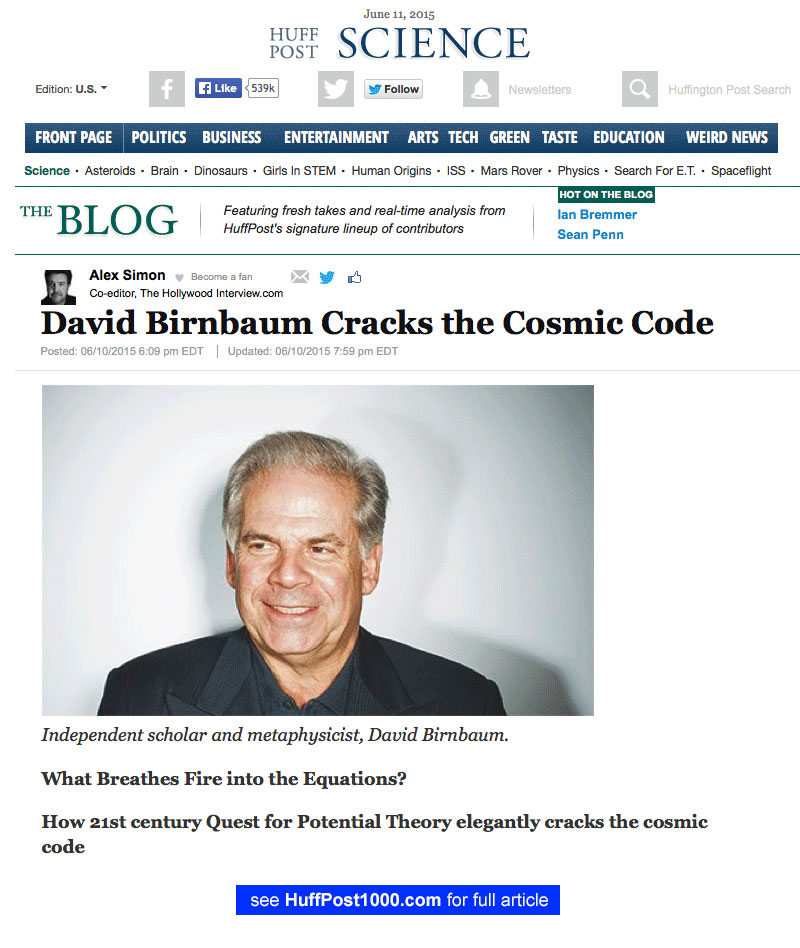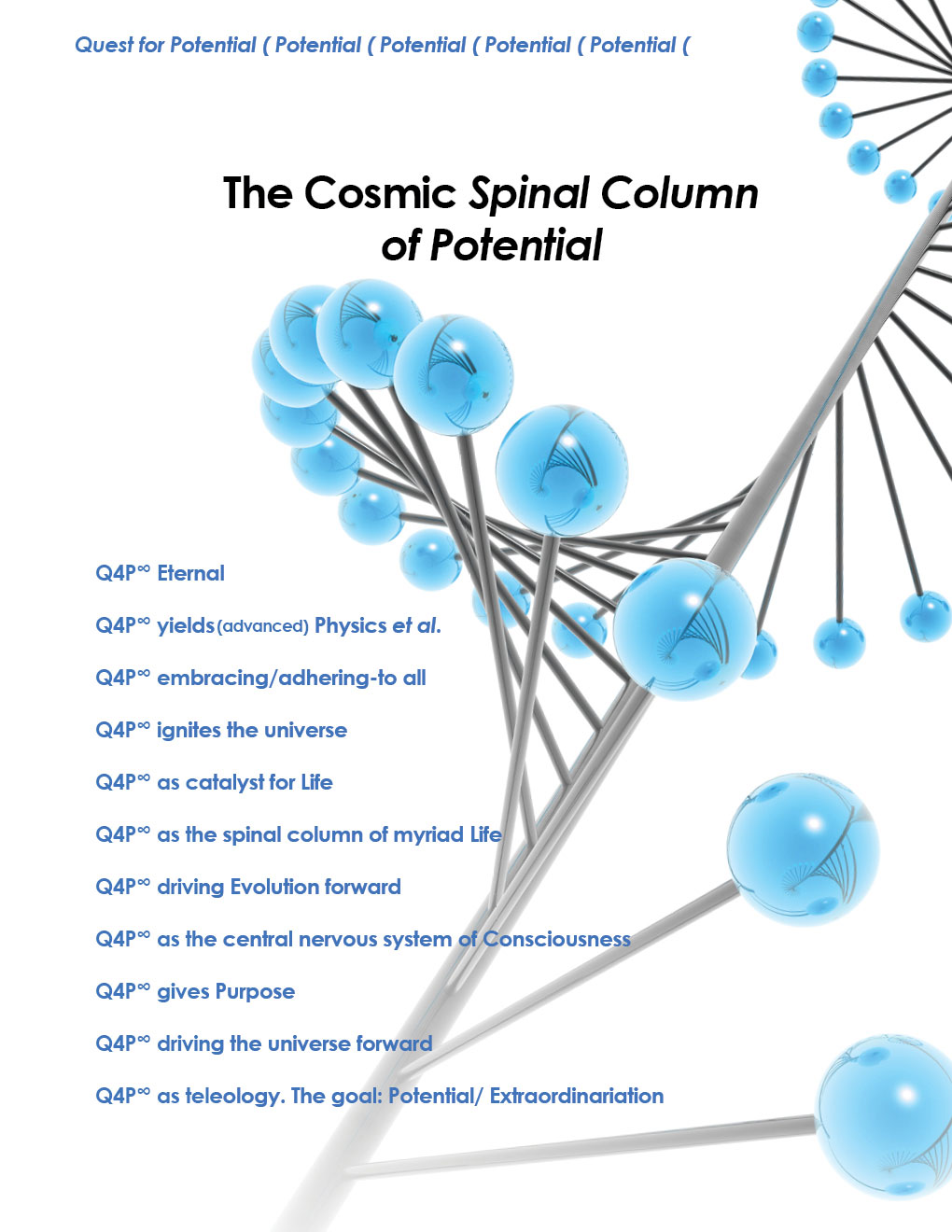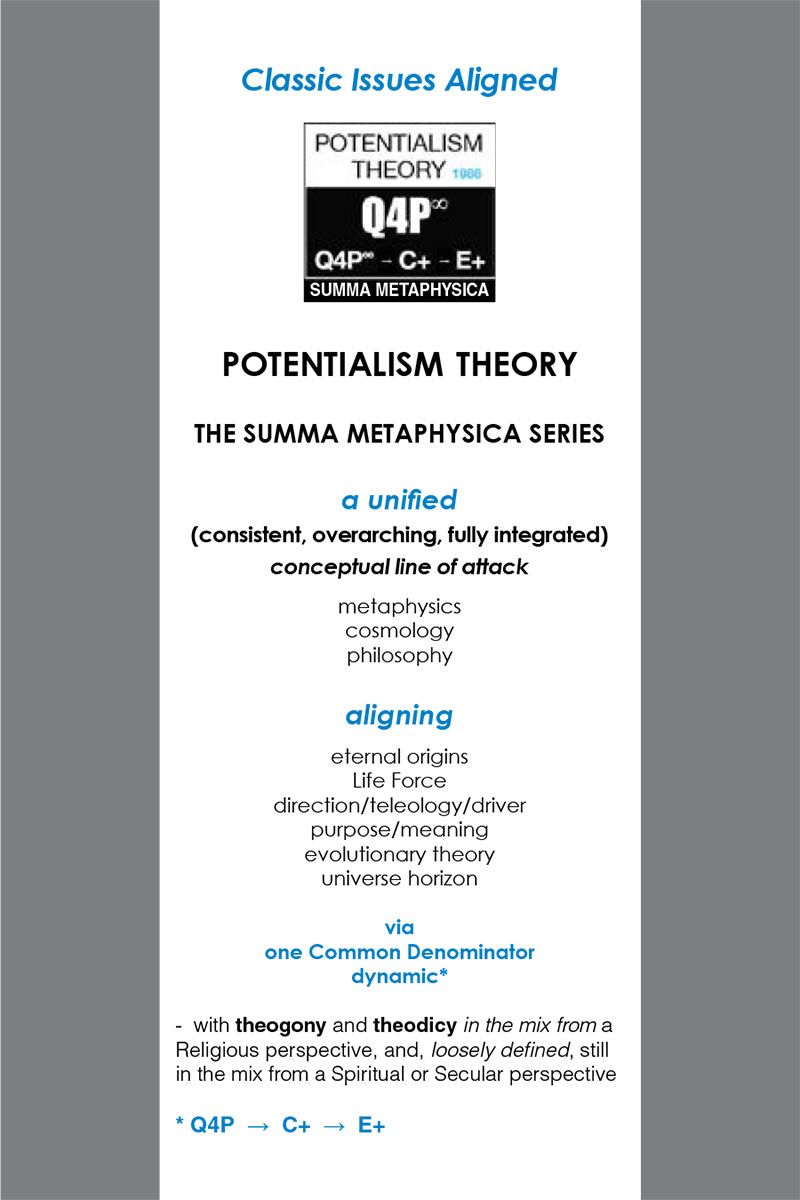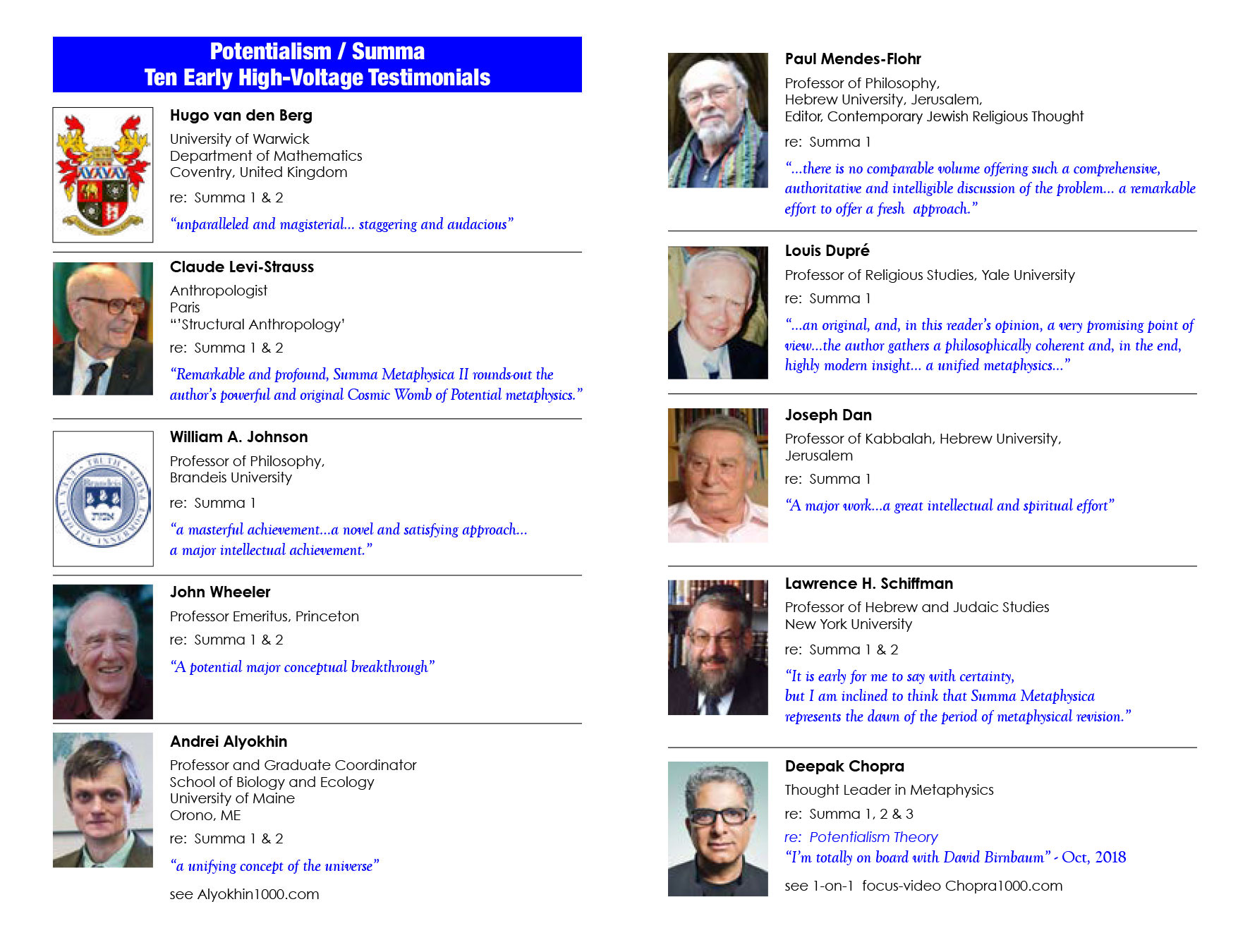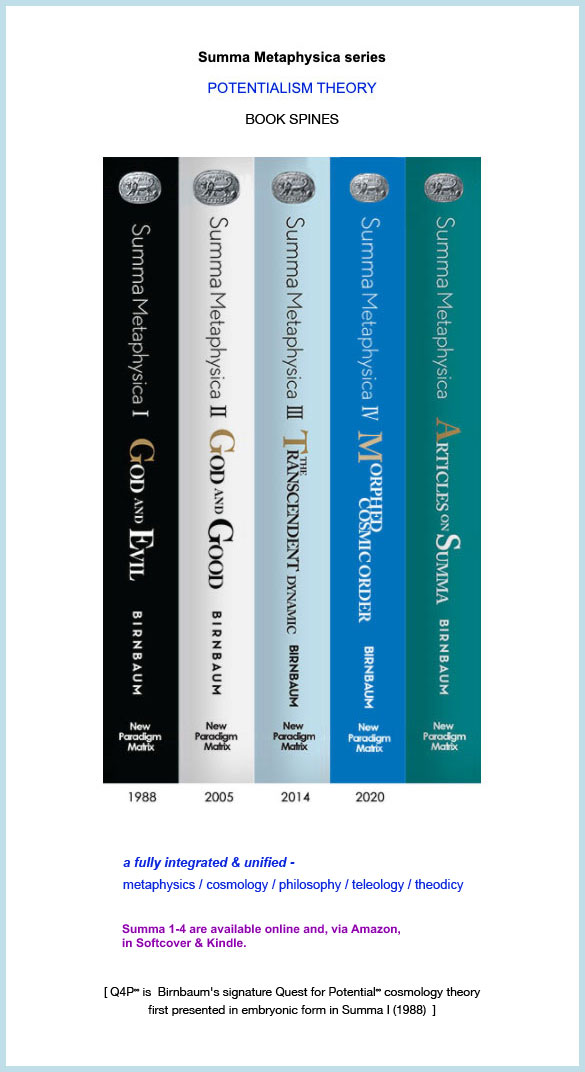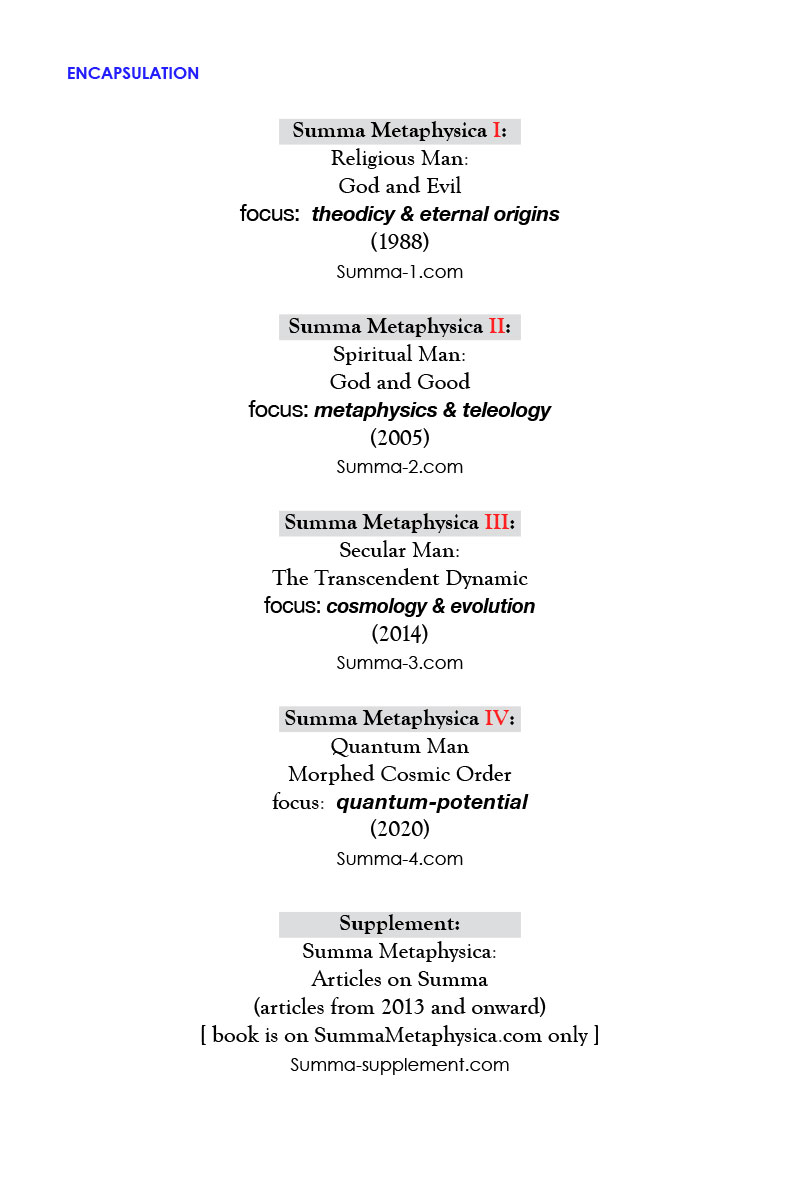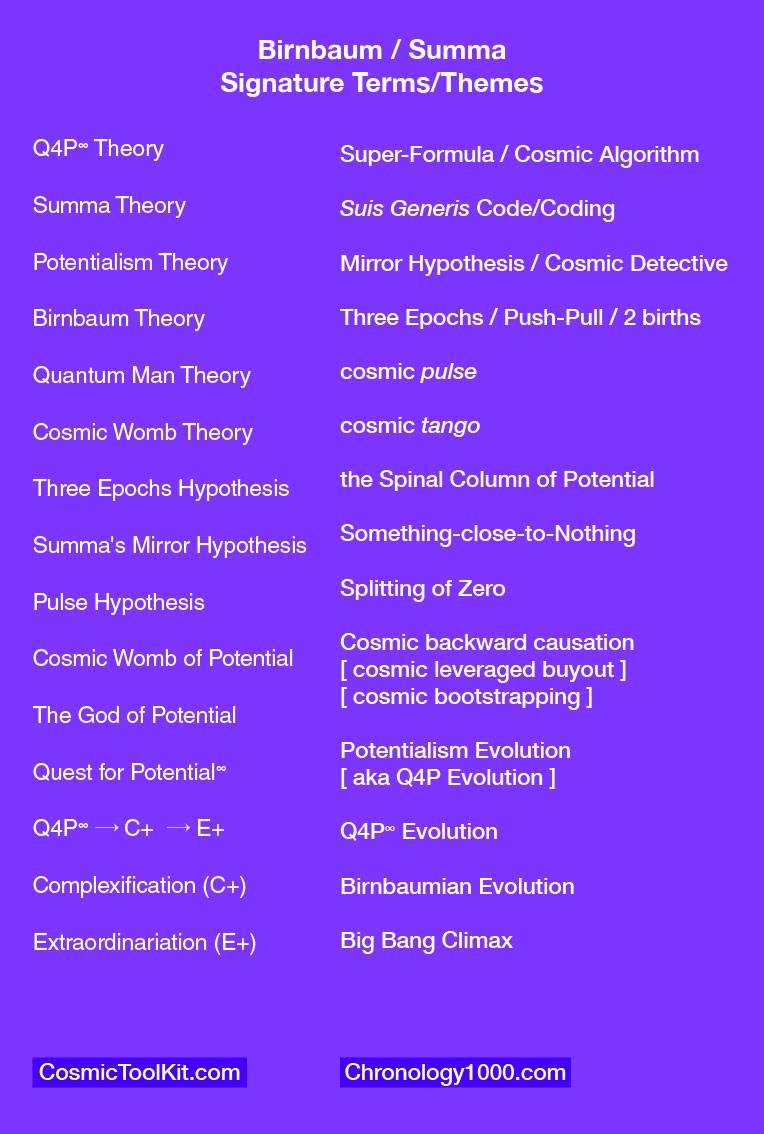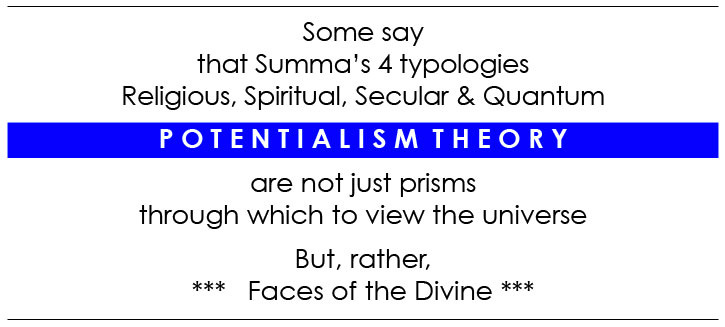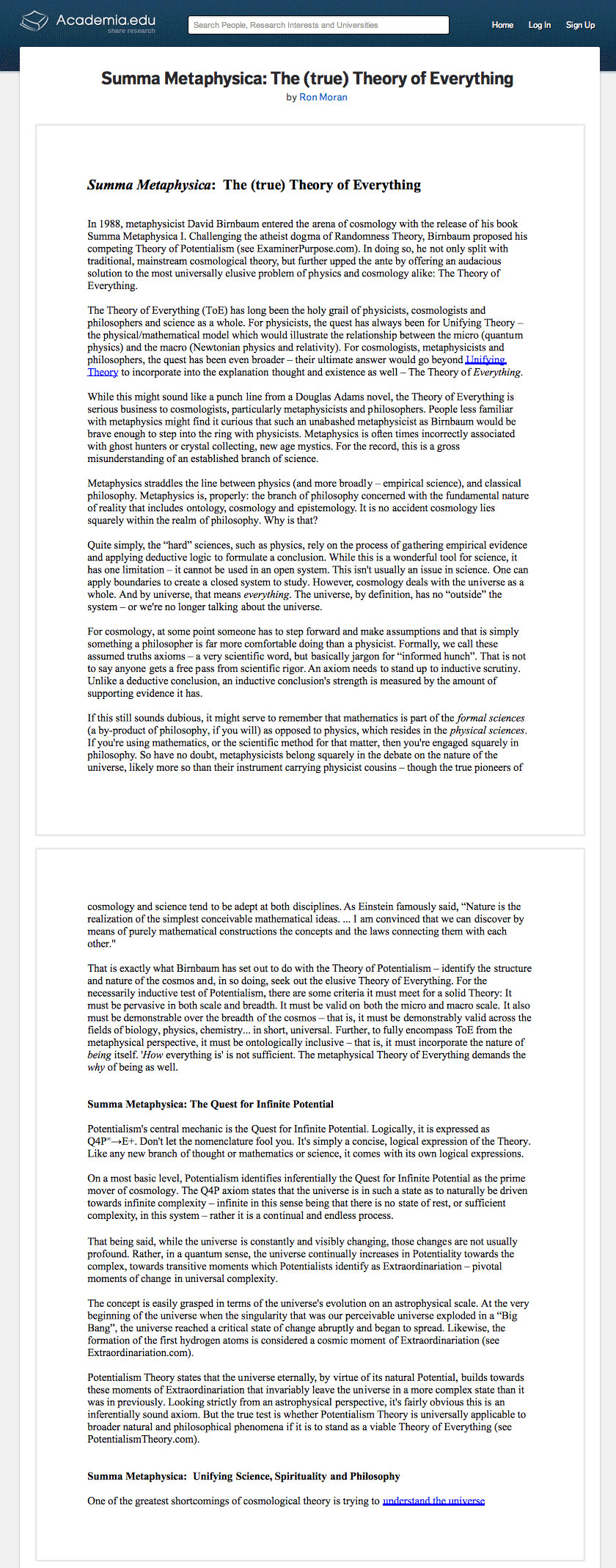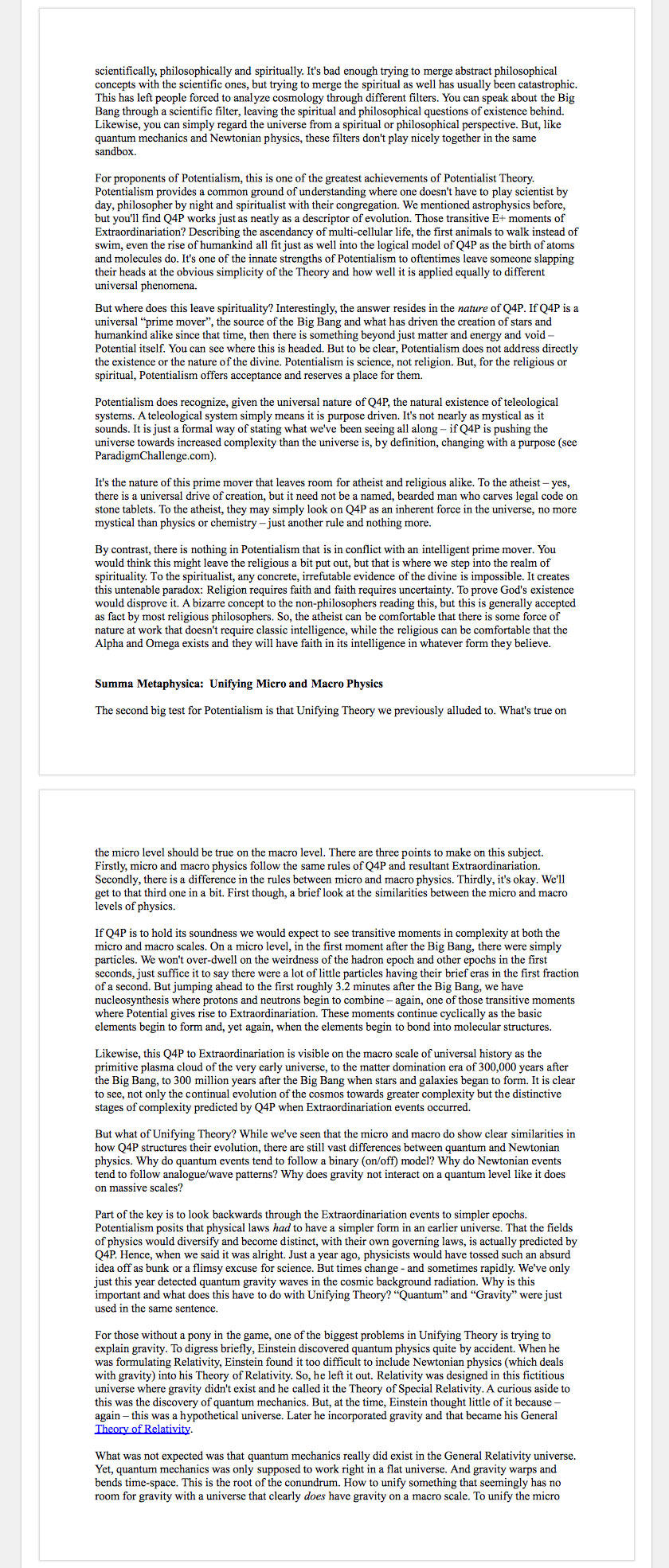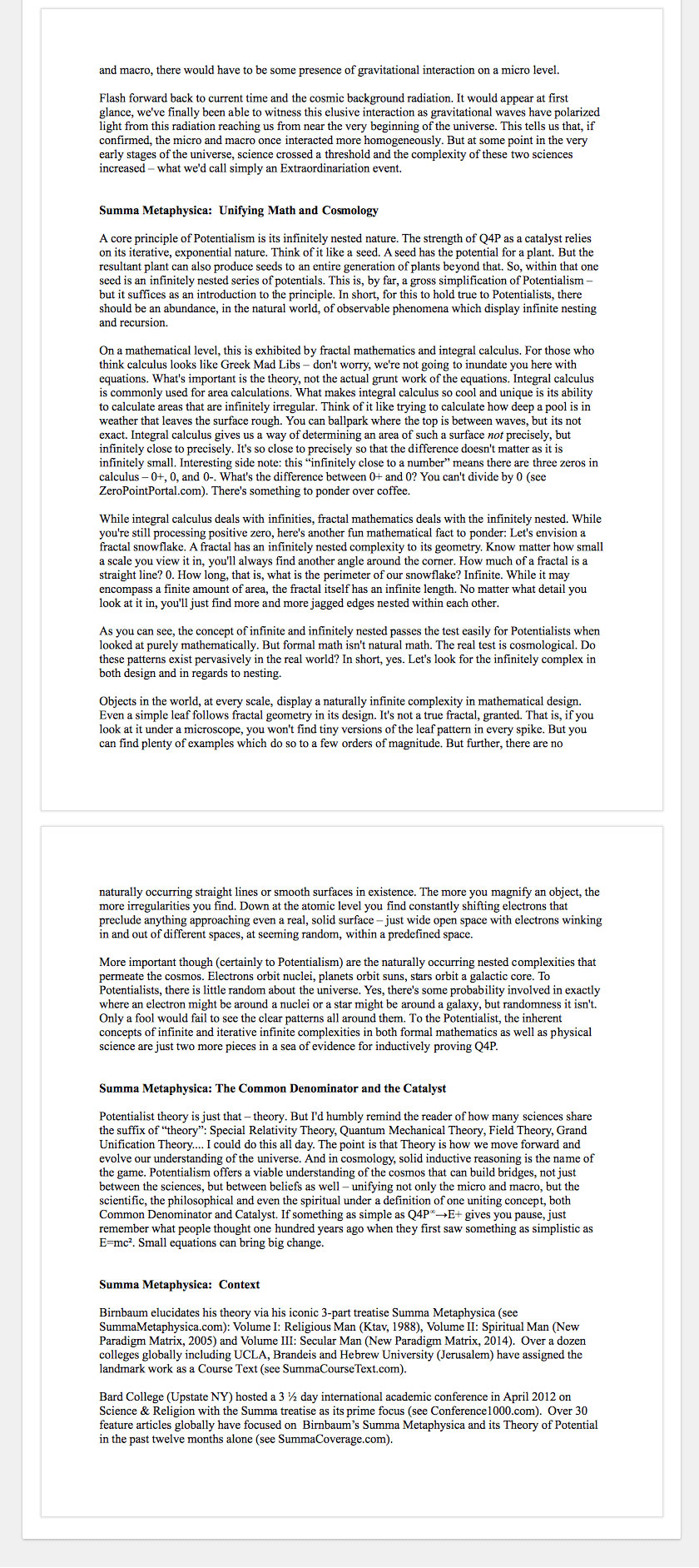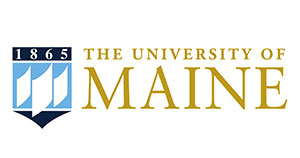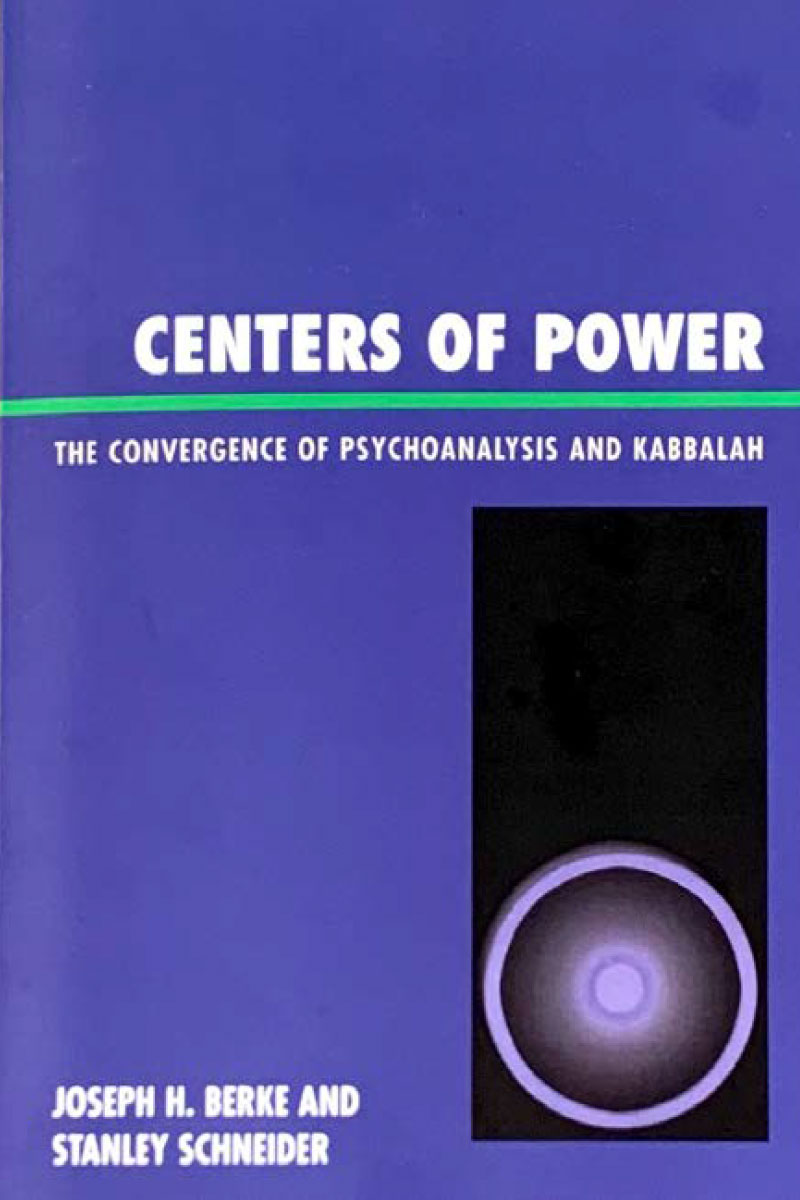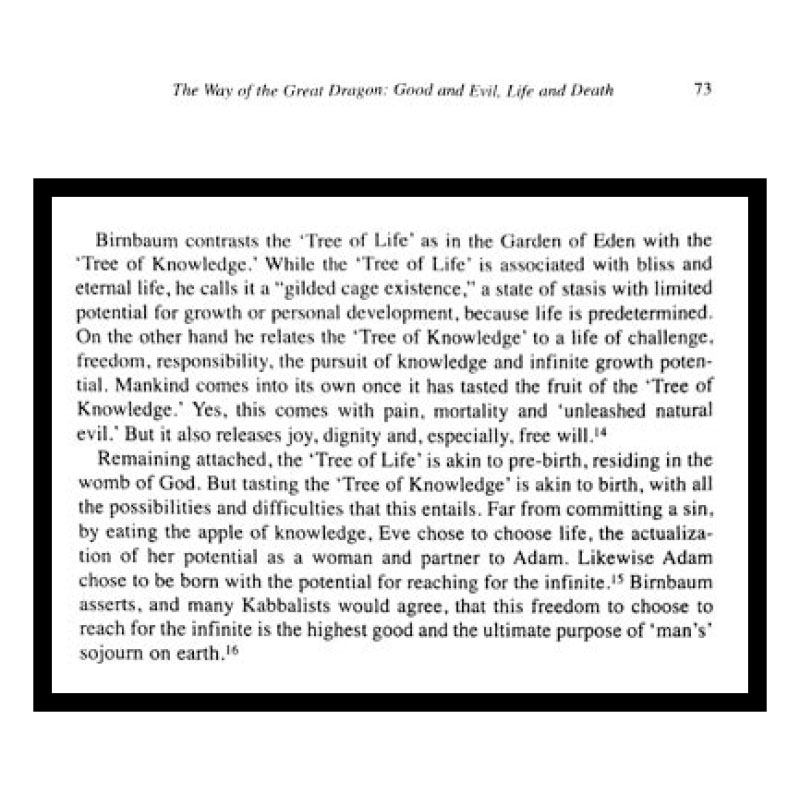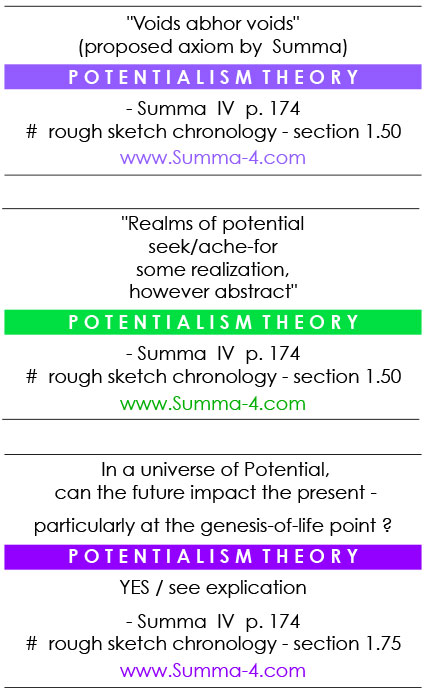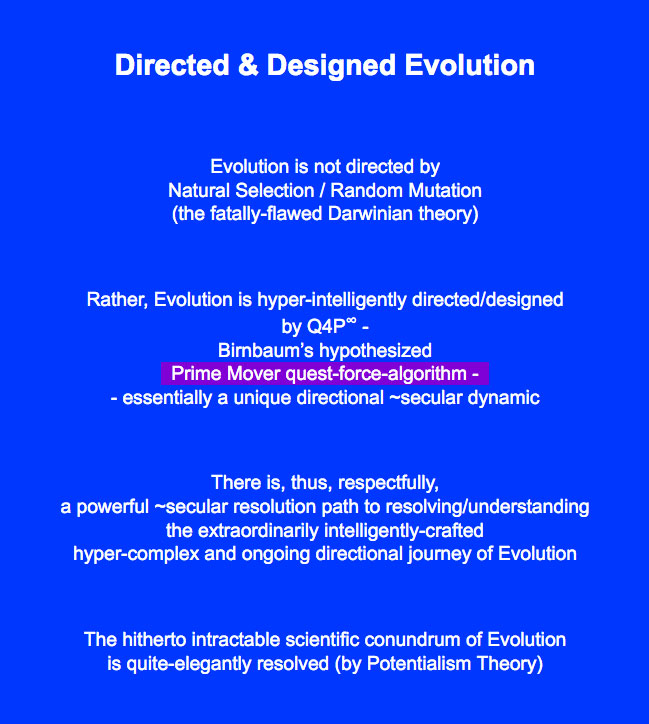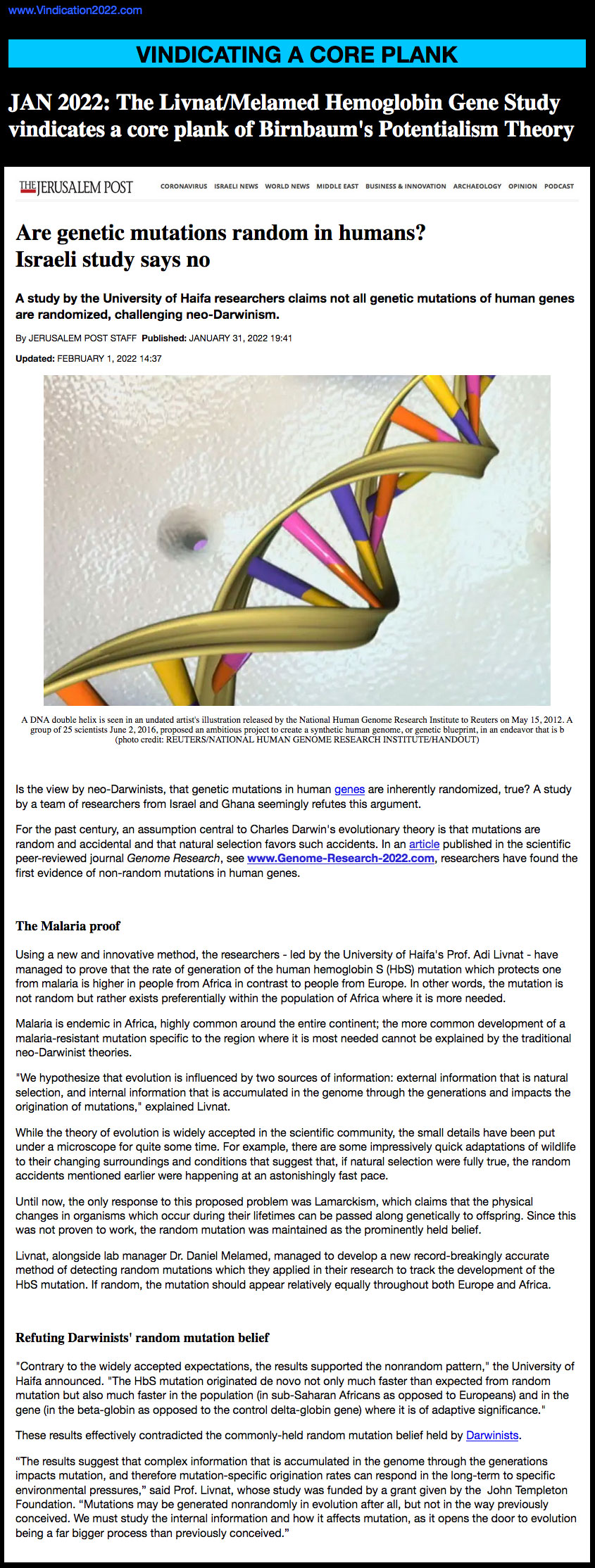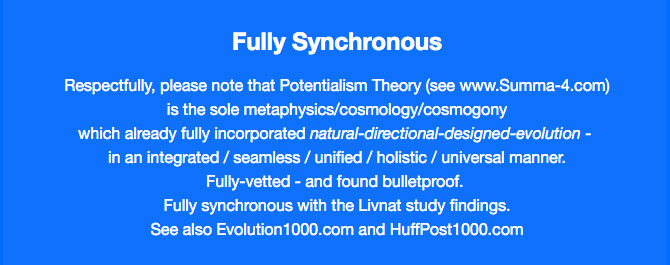♣ DAVID BIRNBAUM PHILOSOPHY ♣
Inter-Disciplinary Metaphysical Warriors:
Harvard’s David Birnbaum & Yale’s David Gelernter
David Birbaum (b. 1950]
Computer Science major, CCNY
Harvard Business School
author of the iconic trilogy Summa Metaphysica philosophy series
Founder of Potentialism (the above-noted Summa Metaphysica’s Theory of Potential)
Editor-in-Chief, in-progress 10-volume Mesorah Matrix Jewish philosophy series (180+ essayists)
author, 7-volume Jews, Church & Civilization
day job: international rare gem dealer
David Gelernter [b. 1955]
Hebrew Literature major, Yale
Parallel computing maven
author: Mirror Worlds (on computing)
author: Judaism: A Way of Being
Fellow, Shalem Center (Jerusalem) [a Jewish Thought ‘think tank’]
day job: professor of computer science at Yale
definitions:
cosmology – a theory of the origins and workings of the cosmic order
metaphysics – a unified construct integrating philosophy, science and cosmology
Birnbaum and Gelernter have never met; however, their gestalts (world views) would intersect on the global stage in January of 2014.
In March 2012, Harvard graduate David Birnbaum (see www.ExaminerPurpose.com) was the central speaker (& feature) at Bard College (motto: ‘a place to think’) Upstate, NY; the 3+ day international academic conference on Religion & Science was to showcase Birnbaum’s Theory of Potential. In the making since 1988, Birnbaum’s three-part series on Potentialism, Summa Metaphysica (1988, 2005, 2014) elucidates the Birnbaum hypothesis via three quite-distinct lenses – Religious, Spiritual and Secular. In-the-mix (aside from its primary thrust to so to speak ‘crack the cosmic code’) the work happens to unify Philosophy, Spirituality and Science, no-small-feat, in and of itself.
Birnbaum’s Theory of Infinite Potential is unique, powerful and original; it has been the focus over fifty focused feature articles in 2013-2014 alone. Taking-off where Spinoza left-off 400 years ago, Birnbaum essentially re-invents metaphysics. The guts of the theory is that an overarching cosmic dynamic which Birnbaum discerns and labels as Infinite Quest for Potential (shorthand notation: Q4P) drives our Cosmic Order.
In its wake, Birnbaum’s fully-integrated holistic and overarching Theory of Potential effectively decimates and overthrows the ‘apex predator’ Randomness/Atheist construct of the universe (championed by English universities) which exercised a stranglehold over academe for the entire 20th century.
Drawing a mix of scientists, philosophers and theologians alike, the Bard conference highlighted Birnbaum’s well-vetted 21st century cosmological model which unified – under the umbrella of one overarching metaphysics the fields of Philosophy, Spirituality and Science – typically self-contained disciplines of thought.
Two things were learned from that conference: 1) If there is one thing academics dislike, it is change; 2) if there is one thing academics hate, it is being wrong. Unfortunately for the Randomness/Atheist academics, Birnbaum’s Potentialism realized both to the halls of academia.
Undermining the long held beliefs of the 20th century’s chosen cosmological theory of England’s Randomness/Atheism, Birnbaum’s Potentialism represented a devastating departure from the entrenched pseudo-theory; Randomness/Atheism had posited for 100+ years in its (bizarre) one-sentence all-encompassing construct that All is random happenstance and chance; there is no direction or pattern to the universe.
Randomness/Atheism had not only de-legitimized the validity of Religion and Spirituality, it had also dismissed the classic fields of Philosophy and Metaphysics. The British Randomness/Atheists pro-actively fostered animosity between scientists on the one hand, and theologians and philosophers on the other; Birnbaum’s central theory of Potentialism proved to be an elegant bridge between all concerned. While globally embraced by a wide swath of philosophers, theologians, and a group of American scientists, orthodox British academics hated him for it.
To be clear, I do not mean they disagreed. That is normal, healthy and to be expected for any new cosmological models. This went far beyond that. Via nameless surrogates, British academia embarked on a concerted character assassination, not only of Birnbaum, but of anyone who attempted to defend him.
Even the president of Bard college, who hosted the event in March 2012, would come under withering attack; under mounting pressure from the Brits, thirteen months-later the Bard president buckled, about-faced and bizarrely claimed there had ever even ‘been’ a conference. After coming under withering attack from a freakish journalist in an Atheism-controlled academic journal, for ’undermining the world academic order’ Bard apparently quickly destroyed its set of official conference tapes; the Bard president was not aware that Birnbaum’s publishing outfit had made its own wall-to-wall video of the entire 4 days spanning the conference. The Birnbaum crew then posted its own set of tapes on its conference site www.Conference1000.com globally humiliating flip-flopping Bard. Conference observers wryly remarked that a new movie was in order: Metaphysics, Lies, and Videotapes
Bard may buckled from the focused vituperation, but Birnbaum and his intellectual allies didn’t.
Enter Gelernter
In January 2014, David Gelernter, of Yale, stepped forward to answer that question with his own counter-challenge. In a major feature article in Commentary Magazine, Closing of the Scientific Mind, Yale professor Gelernter, counter-attacked; he struck back in defense of discovery and the scientific process. He particularly attacks scientific hubris – which has noted had been on a campaign to intimidate and destroy humanism in the scientific community.
Gelernter specifically singles out the importance of values, morality, spirituality – and even beauty and religion – in humankind’s broader understanding of the universe as a whole. In the scientific community’s rapidly increasing need to reduce the entirety of the universe to quantifiable values, they’ve morphed into an academic clique, which attacks any semblance of humanism as invalid in understanding, truth and cosmology as a whole.
Gelernter notes that a British physicist apparently has about as much understanding of humanism as the average man on the street has of quantum physics – and rightly so. Physicists tread into cosmology like it is their native field. Even Stephen Hawking was crass enough to declare philosophy dead and useless compared to physical science.
Yet, in all their hubris, they have forgotten that cosmology does not even belong to the science of physics. Why is that? Because it has always been known that physical science cannot understand the totality of the universe. Physics is not thought. Physics is not art. Physics is not morality. Yet, all these things exist in our universe. Physicists and the scientific community at large, in an attempt to hijack cosmological discourse, have sought to incorrectly banish humanism and spirituality as myth – notwithstanding their significant acceptance by society at-large.
So, how has modern academia gotten away with slipping these blinders over people as a whole? Gelernter says the answer is obvious. Scientists have sought to, “belittle human life and values and virtues and civilization and moral, spiritual, and religious discoveries, which is all we human beings possess or ever will, they have outrun their own empiricism. They are abusing their cultural standing. Science has become an international bully.”
Two minds as one
And Birnbaum is in lockstep on this issue. To Potentialism, the (complete) universe is the universe, not just its tangible aspects. Roll that around on your tongue for a moment if it sounds repetitive. If it does, it’s a symptom of modern science’s influence on our understanding. Too often, academics will speak of void, energy, planets and stars, or trees and living creatures as the totality of existence. They say this as if having these thoughts about such matters are not a part of the universe as well. But the universe, put simply, is everything. Be it matter, energy, consciousness, thought, morality, potential spirituality. If the universe is everything, nothing can be excluded.
Like Gelernter, Birnbaum states this is an inescapable truth. When academia tries to frame this as anything but an undeniable truth, it is to reframe cosmology as something they can competently and completely explain – which they’ve never actually been capable of. One only need reference the now-dated 20th century Randomness construct to see how far off-track exclusive focus on physical science can take one in cosmology.
After pondering the mysteries of the universe for roughly a century, the atheist academics concluded that there is 1) no pattern in the universe, 2) no direction, 3) no purpose, 4) humanity is a freak occurrence, and 5) all is destined for pointless atrophy. The Atheistic ‘theory’ is basically a theory ‘No theory’; we do not have a clue; the ultimate ‘hollow theory’.
Birnbaum himself is quick to point out why they found no answer. Science isn’t cosmology and academia had a loaded deck – they were destined to fail when they began because they never had, and never will have, the tools necessary to crack the Cosmic Code. The reason is simple, and so utterly obvious, it is self-evident. When you remove humanism from the equation, you’re no longer looking at the universe. How are you to make an informed conclusion about something you are incapable of truly seeing? Birnbaum knows this. Gelernter knows this. Cosmology, in the absence of humanism/consciousness/cosmic advance is just a collection of some measurements.
Context
No flaw has been discerned in Birnbaum’s Theory of Potential since first introduced to the world via Summa I (Ktav Publishing, 1988). A Course Text at over a dozen colleges globally, Summa Metaphysica has been the focus of over fifty feature articles in 2013-2014 alone. See www.SummaCoverage.com.
Recent hi-level academic works dovetailing with Birnbaum’s Theory of Potential include the following:
Programming the Universe (Knopf, 2006) by Professor of Quantum Mechanics Seth Lloyd of MIT;
Mind & Cosmos (Oxford Press, 2012) by Professor of Philosophy & Law Thomas Nagel of NYU;
Our Mathematical Universe (Knopf, 2014) by Professor of Physics Max Tegmark of MIT.
For further reference:
www.ParadigmChallenge.com
www.SummaMetaphysica.com
www.PotentialismTheory.com
www.DavidBio1000.com
www.DavidBirnbaum.com


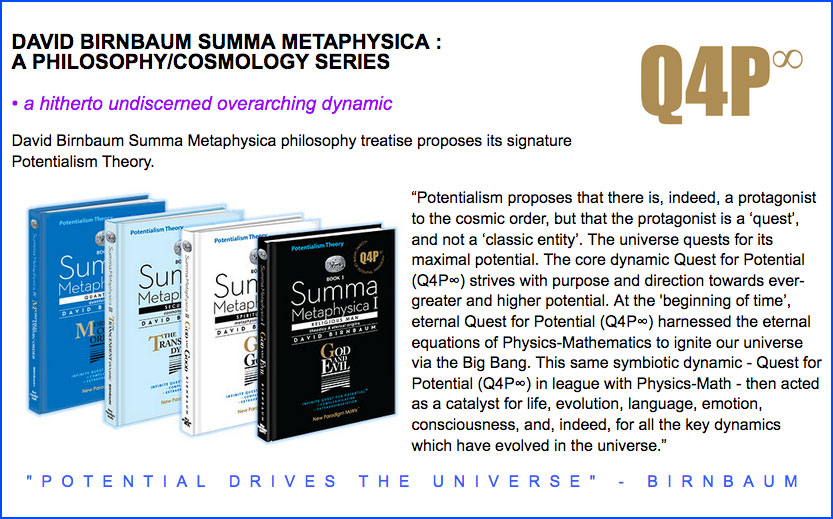


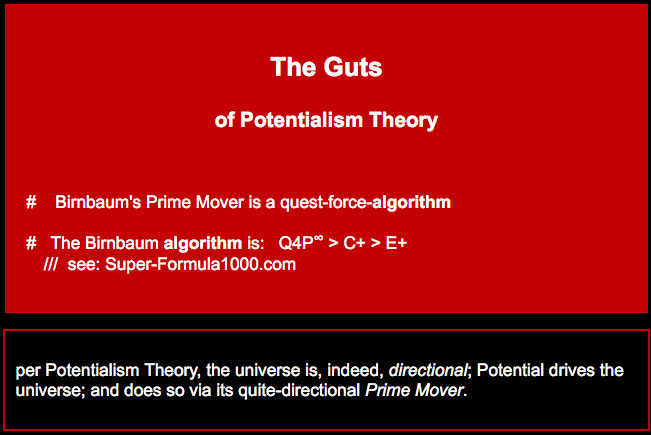

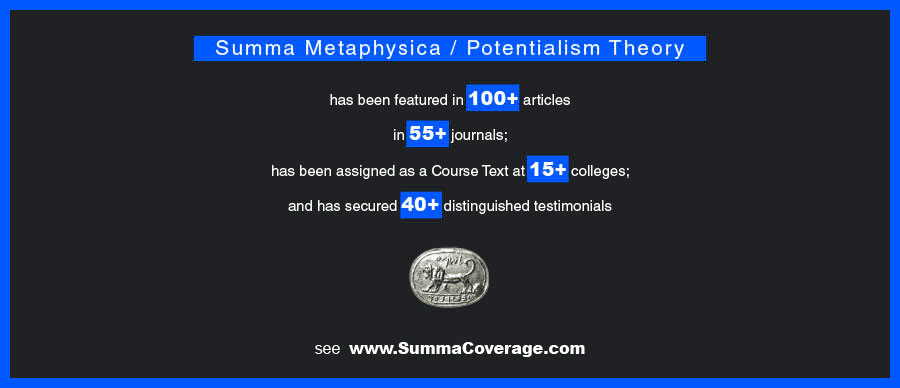



![]()
